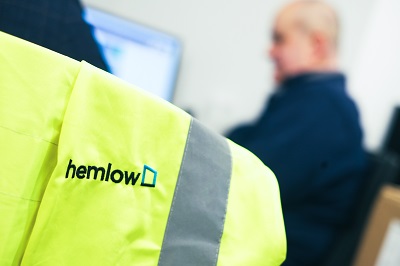The Heating, Ventilation, and Air Conditioning (HVAC) sector plays a vital role in ensuring indoor comfort, energy efficiency, and environmental sustainability. As HVAC continues to evolve, there is a growing debate about the potential for artificial intelligence (AI) to replace human engineers in building maintenance services.
While AI offers innovative solutions and automation options, there are many reasons why it cannot replace engineers in M&E services. In this article, we look further into the complexities of HVAC systems and highlight the irreplaceable role that engineers play in designing, optimising, and maintaining these systems.
Unique environments
HVAC systems operate in a wide range of environments, each with its own set of challenges and requirements. Engineers possess a deep understanding of these complexities, taking into account factors such as building design, occupancy patterns, climate conditions, and local regulations.
This expertise ensures that HVAC systems are tailored to specific environments, leading to optimal performance, energy efficiency, and user comfort. Additionally, efficient energy management is crucial for optimising HVAC systems in these specific environments.
Problem-solving
The HVAC industry often presents challenges that require adaptability and rapid problem-solving. Engineers are skilled at identifying issues, diagnosing problems, and implementing solutions in real-time.
As part of their proactive measures, engineers perform preventative maintenance tasks to prevent building damage, retain structural integrity, enhance durability, and protect a building from decay and functionality preservation.
While it is understood that AI can automate routine tasks and diagnostics, it struggles with unexpected situations. An engineer’s ability to think freely and critically enables them to address complex issues quickly, minimising any downtime.
User Comfort
User comfort is a top priority in the HVAC industry. Routine maintenance tasks, such as cleaning, garbage removal, lubrication, inspection of utility systems, repainting, and weeding, are essential for ensuring user comfort through regular upkeep.
Engineers consider human factors, behavioural patterns, and user preferences when designing and optimising HVAC systems. AI led tasks, on the other hand, lack empathy and the ability to understand human comforts, making them incapable of creating personalised solutions. Engineers ensure that HVAC systems not only meet technical requirements, but also provide occupants with an environment that enhances their quality of life.
Regulations and safety standards in maintenance services
HVAC processes are subject to various regulations and safety standards that vary across regions and industries. Engineers are well-versed in these requirements and ensure that HVAC systems adhere to all relevant guidelines. AI might assist in data analysis and compliance checking, but engineers possess the judgement and awareness required to make decisions that prioritise safety and legal compliance.
Additionally, obtaining a Building Systems Maintenance Certification from BOMI International ensures that workers are equipped to handle plumbing, HVAC systems, water treatment, and efficient energy management in compliance with regulations.
HVAC lifecycle in building systems
The lifecycle of an HVAC system extends beyond its initial installation. Engineers are responsible for ongoing maintenance, monitoring, and optimisation to ensure consistent performance and energy efficiency. They use their experience and expertise to improve systems over time, considering factors like wear and tear, changes in occupancy, and evolving technology.
AI can aid in predictive maintenance, but it cannot fully replace the holistic understanding that engineers bring to the ongoing management of HVAC systems. Planning for regular, long-term upkeep helps forecast maintenance costs and ensure financial stability.
Evolving technologies in efficient energy management
The HVAC industry is evolving rapidly, with advancements in energy-efficient technologies, renewable energy integration, and smart building systems. Engineers are at the forefront of innovation, conducting research, experimenting with new technologies, and driving the sector’s progress.
AI can assist in data analysis and simulations but cannot provide intuition, curiosity, and creativity, which are crucial in pushing the boundaries of what each system can achieve. Efficient energy management is also becoming a key component of these advancements.
Interpersonal skills
Communication, customer service, trust, and relationship building are essential aspects of the HVAC industry.
Human engineers possess these skills, which cannot be replicated by AI. Building trust with clients and understanding their unique needs is crucial to providing effective solutions. AI may not be able to fully comprehend the nuances of human interactions, making human engineers vital in this regard.
Additionally, maintenance supervisors play a key role in training maintenance workers, which further develops these essential interpersonal skills.
Data reliance
AI in facilities management is only as good as the data it holds. If the data is bad, corrupt, or outdated, it could provide incorrect guidance and recommendations. Human engineers are necessary to review and verify data, ensuring that AI-driven solutions are accurate and reliable.
Control point management is also crucial in this context to ensure the accuracy of data for AI-driven solutions.
Ethical Judgements
Engineers make ethical decisions regarding the impact of their work on the environment, sustainability, and occupant well-being. These areas often require moral reasoning, which AI may lack. Human engineers must continue to make these decisions, ensuring that their work is not only efficient but also responsible.
Similarly, building maintenance professionals have ethical responsibilities to ensure their skills are up-to-date and comply with regulations through certifications and ongoing training.
Hands-On Skills
AI in building maintenance cannot perform physical tasks that require hands-on skills, such as repair and maintenance. Engineers possess these practical skills, which are essential for resolving complex issues that arise in HVAC systems.
Maintenance workers also play a crucial role in building maintenance, as their practical skills are vital for performing routine repairs and upkeep.
Engineer Collaboration with AI
While AI has the potential to enhance various aspects of the HVAC industry, it is important to recognise that human engineers bring a unique combination of contextual understanding, creativity, problem-solving ability, and humane thinking that AI cannot replicate.
The future of the HVAC industry lies in a partnership between building maintenance engineers and AI, where each contributes its strengths to create sustainable, efficient, and comfortable indoor environments.
At Hemlow, we acknowledge the importance of technological advancements in artificial intelligence and recognise its potential to drive efficiency. Our engineers will continue to use AI as a tool in their toolkit, just like any other technology designed to enhance their work.
By embracing both human expertise in M&E services and AI capabilities, we can create a more effective and innovative approach to solving the complex challenges faced by the HVAC industry. This collaboration also benefits the property management company by ensuring sound building maintenance practices that enhance safety and attractiveness for renters while minimising risks.
Contact Us
Whether you’re looking for a standard, compliant maintenance program or a more customised approach to address your building’s unique requirements, we’ve got you covered.
Contact us today to learn more about our standard and adaptive maintenance services and how they can help you enhance your building’s performance, efficiency, and safety.
Sales team: Elizabeth.Lyon@hemlow.com or Oliver.Dawes@hemlow.com


